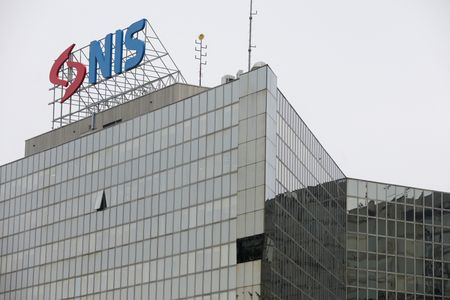By Akash Sriram
(Reuters) -Uber Technologies on Wednesday forecast first-quarter bookings short of estimates due to a strong dollar after it reported a profit miss in the October-December period, sending its shares down more than 5%.
But the San Francisco-based company also beat fourth-quarter revenue estimates, helped by stable ride-hailing demand for office commutes and a strong holiday season for its delivery services.
Uber’s quarterly adjusted EBITDA jumped over 40%, but since it did not beat expectations, shares were lower, said Adam Balantyne, senior analyst at Uber shareholder Cambiar Investors.
Already a dominant ride-hailing service in North America, Uber has been trying to convince investors that it has plenty of room to grow by attracting more businesses and self-driving vehicle partners to its platform.
Its business-focused service reported a 50% surge in bookings for the last three months of 2024, thanks to return-to-office mandates.
Its total revenue of $11.96 billion also surpassed analysts’ average estimate of $11.77 billion, according to data compiled by LSEG.
But total costs and expenses rose 20.5% to $11.19 billion, resulting in operating income of $770 million missing estimates of $1.22 billion.
Adjusted profit of 23 cents per share, also came in below analysts’ average estimate of 50 cents, while adjusted core profit stood at $1.84 billion, narrowly missing estimates of $1.85 billion.
Uber’s projection for adjusted core profit and gross bookings for the first quarter too fell short of expectations.
The outlook for the Jan-March period accounts for the impact from wildfires in Los Angeles, and unusual weather patterns, particularly in the South, CFO Prashanth Mahendra-Rajah said in a call with analysts.
Rival Lyft has been aggressively working on luring customers away from Uber through competitive pricing and new features, such as Price Lock that offers daily commuters guaranteed prices. Its shares fell 5% in early trading.
CEO Dara Khosrowshahi on Wednesday talked up Uber’s dominance in the self-driving taxi sector, touting its expansive network as a reason for technology partners to deploy their driverless taxis on the platform to maximize utilization of such vehicles.
Positioning itself as a major contender in the robotaxi race, the company said that Alphabet’s Waymo will launch its self-driving taxi offering in Austin, Texas, exclusively on Uber’s platform next month.
Tesla CEO Elon Musk has also said the automaker will test its driverless car technology in Austin starting June, without providing details on how it would roll out a paid service.
(Reporting by Akash Sriram in Bengaluru; Editing by Shinjini Ganguli)










